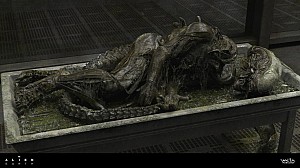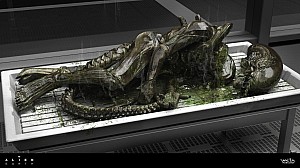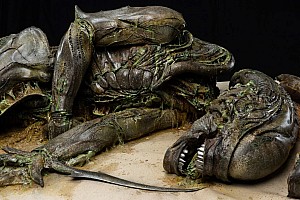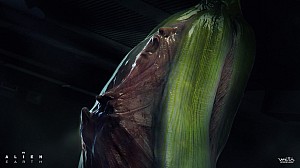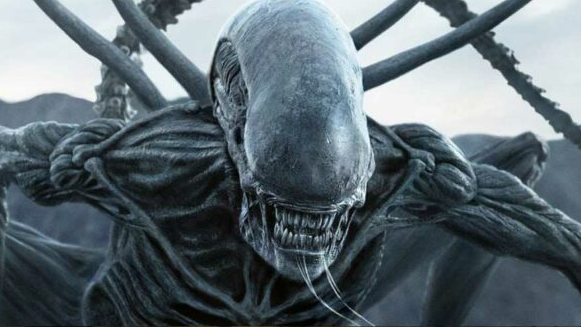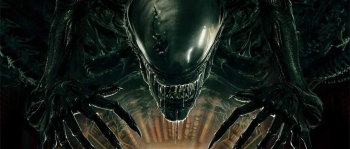On set or off, movie makers Jim Cameron and Gale Anne Hurd are never Aliens to each other. By Jim Calio.

The night Aliens opened last month, James Cameron, Aliens' director, and his wife, Gale Anne Hurd, the movie's producer, were having dinner in a Los Angeles restaurant. Their hosts were Barry Diller, president of 20th-Century Fox, the studio that released the picture, and media magnate Rupert Murdoch, Fox's owner. Too nervous to enjoy the meal, the group drove to a theatre that was showing the horror sci-fi flick and caught the closing minutes. ''It was very emotional,'' Cameron says. ''The crowd was cheering. There was a kid sitting behind us who was giving a running commentary on every scene. Gale and I just looked at each other and said, 'Can you believe this?' '
They do now, and so does the moviegoing public. Rex Reed, while panning the movie as ''absurdly long and badly in need of cutting,'' conceded that ''nothing in movie history that I can recall will fully prepare you for the shock'' of seeing the drooling mother alien. In its first 10 days, Aliens, starring Sigourney Weaver as warrant officer Ripley, the sole human survivor of 1979's Alien, grossed more than $25 million, a prodigious blast-off. Industry analysts predict that Aliens will top the $100 million mark by the end of the year and may even surpass Top Gun ($102 million to date) as the year's biggest hit.
But who are Cameron and Hurd? No one had ever heard of them until 1984, when their first collaboration, The Terminator, starring Arnold Schwarzenegger, proved to be a surprise hit. The movie also has done a bang-up business in videocassette sales and rentals. With that success came the chance to do Aliens, an $18 million sequel to the gory outer-space thriller about parasitic horrors hatching in the viscera of much of the cast. In Hollywood, directors are constantly at war with producers and vice versa. So how do Cameron and Hurd keep the peace? ''We have a rule,'' he says. ''I don't make any deals for her and she doesn't argue on the set with me in front of the crew.
That's the strength of the partnership. You can't drive a wedge between us. People try, but they can't.'' Sigourney Weaver was leery of doing a sequel until she sat through a screening of Terminator and then met Cameron and Hurd. ''I felt they were kind of a new breed of filmmaker,'' she says, ''in the sense that they understood the business requirements of the industry but also really wanted to do something that was personal and true to their vision.'' Weaver finally was swayed by Cameron's script and its portrayal of her character as more than a female Rambo. But before shooting could begin, Cameron and Hurd nearly bowed out of the project over a budget feud with Fox and the couple's insistence that Weaver be the star. Says the actress: ''I'm amazed that (the movie) happened. It's completely due to the perseverance of Gale and Jim.''
On the set Cameron, 32 this month, and Hurd, 30, have complementary styles. Cameron is fiery and intense. ''If something's not going right, Jim will get down on his hands and knees and work in the slime to get it right,'' says Michael Biehn, who plays a good-guy Marine in Aliens. ''Sometimes I don't think he realises other people aren't as talented as he is, so they can't do what he does. He'll just do it himself.'' Hurd, says Weaver, is gentle but firm. ''They play good cop-bad cop, and often he's the bad cop,'' Biehn explains. ''She comes in and tries to find a compromise, smooth things over.''
They also know how to compromise with each other. When Cameron wanted to build 12 ''hypersleep capsules,'' which suspend the alien-busting crew's life functions during extended treks through space, Hurd told him they could afford only six. Cameron found a way to use mirrors to make the six look like a dozen. Says Barbara Boyle, head of production at RKO, ''In L.A. the attitude is 'So what if it runs a couple of hundred thousand dollars over budget? Screw the studio.' But Gale is very careful with other people's money.''
The daughter of a wealthy Los Angeles businessman, Hurd, an economics and communications major, graduated Phi Beta Kappa from Stanford in 1977, tried an advertising job, then went to work for producer Roger Corman, the B-movie king who had helped launch the careers of Martin Scorsese and Francis Ford Coppola. In 1980 Hurd -- by then Corman's executive assistant -- helped promote a promising new model-builder to art director on the film Battle Beyond the Stars.
The model builder's name was Jim Cameron. Born in Ontario, the son of an electrical engineer, he had emigrated to California with his parents in 1971. Always a movie buff (''I was skinny because that's where I spent my lunch money''), Cameron drove trucks, spent some time in junior college and eventually wound up with Corman and Hurd. He got his first directing job in 1982, replacing the director of Piranha II. He had to learn Italian in order to converse with the crew (''They told me someone would speak English, but no one did, from the producer on down'').
Then he wrote Terminator, selling the script to Hurd for a dollar so that she could afford to produce it. By that time relations with his future producer were golden. Less collegial ; was his feeling for Sly Stallone, for whom Cameron had written Rambo's first draft -- an assignment that left a bitter taste when Stallone rewrote the script top to bottom. ''I haven't talked to him once since the last time I saw him, which was before I finished the screenplay,'' says Cameron. Gale has said: ''Stallone never learned Jim's name.'' In Cameron's view, Sly turned Rambo into ''cardboard,'' robbing the character of emotional depth.
Cameron insists that the strong female characters in both The Terminator and Aliens are not the result of Gale's influence, but because he likes strong women, period. ''It's the reason I was attracted to Gale in the first place,'' he says. Six months after its release in October 1984, Gale and Jim were married on Maui. ''There was a gradual transition from spending 24 hours together because we were making a movie to spending 24 hours together because we wanted to,'' says Cameron. ''It was strange, there was no sudden moment.''
But the ceremony almost didn't come off. ''The day of the wedding I got cold feet,'' admits Gale. ''Jim had to do a logical cost-benefit analysis of why getting married would be good. We came out in the black.'' On the Aliens set outside of London five months after the ceremony, the couple was subjected to the inevitable honeymoon jokes. They handled the situation, says Weaver, ''with a great deal of security and confidence.'' Gale's strength was sorely tested at the Pinewood Studios, where Aliens was shot. Jim says much of the crew had never worked with a female producer. ''There was an older man who was her production supervisor,'' says Cameron. ''He tried to go around Gale several times and got shot down
Finally, he said he just couldn't work for her and we had to replace him.'' Of course, Cameron had some problems of his own: The crew took to calling him ''Grizzly Adams'' because of his beard, a not-so-nice way of saying they thought he was just an upstart. Now, with Aliens finally released, Gale and Jim are finding time to take their first short vacations between promotional tours for the movie. Their newfound passion is scuba diving, which Cameron mastered while filming Piranha II in the Cayman Islands and which Hurd just recently took up. She works out daily with weights, something she picked up from Schwarzenegger, while Jim looks forward to holing up and writing in their Hollywood Hills home. Next for Gale is a film she is producing on apartheid in South Africa. Jim will work on ''a couple of ideas I have -- but I'm doing them strictly for us from now on, no more writer for hire.'' Neither expects the hot breath of success to transform them. ''We're obsessive workaholics,'' says Gale. ''We don't do drugs and we don't drink. We're not the kind of people you want to invite to a party.'' Unless, of course, it might be the Oscars.

David Giler: Cinefantastique Interview
David Giler, who wrote scripts for MYRA BRECKINRIDGE, THE PARALLAX VIEW and FUN WITH DICK AND JANE, always seemed to get his office located down the h...

David Giler Alien 3 Starburst Special Interview October 1992
Alien 3 screenwriter David Giler guides us on the terrifying journey from script to screen. Why was there a third Alien movie? What were all the re-wr...

Did Alien 3 rip-off The Element of Crime?
In 1984, Danish filmmaker Lars von Trier (Melancholia, Dogville) began his directorial career with The Element of Crime, his first feature film. ...



